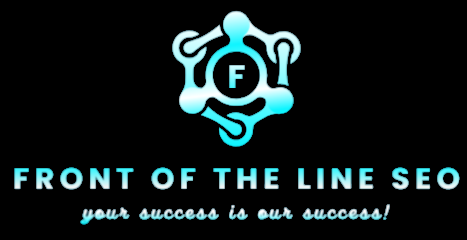SEO SERVICES
How The Best SEO Practices Work in Cape Coral
Search Engine Optimization (SEO) is the key to a website's success in today's digital environment. To increase your website's exposure, draw organic traffic, and ultimately turn visitors into devoted customers, it is essential to implement the best SEO tactics in Cape Coralq. Below are the fundamentals of SEO and the skills and resources needed to successfully optimize a website.
- Keyword Research: SEO begins by determining pertinent terms that consumers are likely to look up when seeking information about the content of the website. Analyzing search volumes, competitiveness, and relevancy are all part of keyword research, which identifies the most pertinent terms for improvement.
- On-Page Optimization: To increase a website's visibility and relevance to search engines, on-page optimization comprises improving numerous website features. This entails optimizing the content, URL structures, page titles, meta descriptions, and headings. The objective is to strategically insert target keywords into the website's content and make sure that it is well-structured and understandable to search engines.
- Technical SEO: The technical elements of a website that affect its visibility and ability to be indexed by search engine bots are the focus of technical SEO. This entails enhancing mobile friendliness, structured data markup implementation, correct indexing, broken link maintenance, website speed optimization, and XML sitemap creation. Technical SEO makes ensuring that the website is technically sound and that search engines can successfully crawl and index it.
- Material Creation & Optimization: SEO relies heavily on relevant, high-quality material. Making material that is educational, interesting, and keyword-rich aids in user attraction and benefits search engines. material optimization entails employing relevant headers and subheadings, adding target keywords for Cape Coral naturally into the material, and organizing the information for readability. Additionally, a website's exposure can be increased by producing new, frequently updated material.
- Link Building: The practice of obtaining high-quality inbound connections from other trustworthy websites is known as link building. Backlinks are viewed by search engines as indicators of a website's authority and relevancy. A website's authority and search engine rankings can be raised by engaging in ethical link-building strategies including guest blogging, content marketing, and forging connections with influencers or sector leaders.
- User Experience (UX): User experience is important to SEO. Websites that offer a satisfying user experience are given priority by search engines. A good user experience is influenced by elements like website navigation, mobile compatibility, page load speed, and intuitive design. A website's chances of appearing higher in search results can be improved by optimizing these elements.
- Monitoring and Analysis: SEO is a continuous process, thus regular observation and evaluation are essential. Finding areas for improvement involves keeping an eye on website performance, traffic patterns, keyword rankings, and user behavior. Website owners may improve their SEO tactics and make informed judgments by analyzing data and stats.
It's crucial to remember that SEO techniques are constantly changing as search engines improve their algorithms. Maintaining a strong SEO presence requires keeping abreast of the most recent trends and best practices. By putting into practice good SEO techniques, a website can become more visible, draw in more relevant organic traffic, and enhance its entire online presence.
The Balanced Approach
You can feel confident that you will connect with the target market thanks to our well-rounded, complete
SEO web design, content, and marketing strategy. We have the technical know-how to boost your business's revenue by moving it from any position on the results page all the way to the top. Gaining attention is more than half the battle in the digital economy. We can help if your current online marketing strategies aren't giving you the outcomes you want. Contact us for a free consultation on our
SEO marketing services in Cape Coral.


Comprehensive SEO Services
Comprehensive SEO in Cape Coral will help a website or online business in a variety of ways when used effectively. Here are some important benefits of a thorough SEO strategy:
- a growth in organic traffic
- improved search engine results
- increased user satisfaction
- improved brand credibility and visibility
- increased income and conversions
- Long-term success and growth
Who We Partner With
Design Rush
Get Your Free Video

Allow us to show you how we are different then the rest. Leave your information and we will send you a short video showing what we can do working together.
We will get back to you as soon as possible
Please try again later
Contact Us
(402) 698-6349
Stay informed
Areas We Service
We have offices in:
Nebraska
Southwest Florida
All Rights Reserved | Front of the Line SEO
